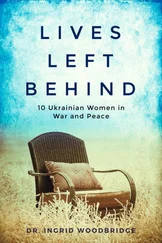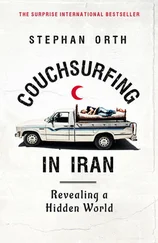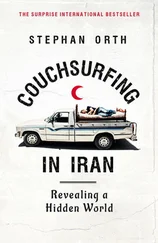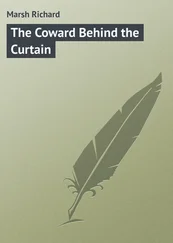GOING TO PUTIN’S
I HAVE TO GETback to the “world.” Leaving is difficult; the simple life in the country has been like a short vacation. Even though (or maybe because) I received no feeling of enlightenment—not even two sevens in the matrix could help me there.
I’ve arranged to meet someone in Kyzyl about whom I know nothing other than that his online profile shows Putin in a black suit, casually walking away from a burning White House. His short answer to my couch request was a single line: “ Privyet . I have a place where you can spend a couple of nights,” and his telephone number. He asks me via text message whether it’s okay for me to stay in a completely empty apartment that’s up for sale. Of course, I write back. I don’t even know his name.
I know a little bit more about the region he lives in. It seems to have little in common with the peaceful altruism of the place I’ve just left. Lonely Planet warns of being out on the streets of Kyzyl after dark because of the numbers of drunks out and about who, apparently, are inclined to be violent. This is doubly threatening as the most popular local sport is wrestling. Additionally, shamanism is in fashion, so the vodka-crazed fighting machines, before leaving me half-dead on the sidewalk, will rip out some of my hair to make an effigy. Even years later, long after the broken ribs from the suplex slam have healed, they could cause me horrific pains with the help of that effigy. Or so I imagine.
A B C
Queer • ГОМОСЕКСУАЛИСТ
Having a non-traditional sexual orientation, which in Russia was only removed from the list of mental illnesses in 1999 and is still considered “treatable.” Since 2013 it has been an offence to speak positively about homosexuality to minors. The 2014 Eurovision Song Contest, won by the bearded drag performer Conchita Wurst, was a major educational challenge for families gathered around their TV sets. “There is no limit to our outrage. It is the end of Europe. There are no more men or women in Europe, just it ,” raged Vladimir Zhirinovsky, the leader of the ultranationalist party LDPR, who is well known for provocative sound bites. However, “outrage” was a bit of an exaggeration, at least if he thought he was speaking for the whole country. At the voting stage, Wurst received a highly respectable eight points from callers in Russia.
To get to Kyzyl I use the online ridesharing platform BlaBlaCar. In this instance the “car” part is accurate; not, however, the “blabla.” The driver bears an uncanny resemblance to Burt Reynolds and his son looks like Andre Agassi. Neither of them seem to feel any need to communicate. We hardly speak on the five-hour journey. In between the cell phone dead zones, I try to plan the next stage of my travels, an activity with quite a high potential for frustration in Russia.
The direct flight from Kyzyl to Irkutsk, near Lake Baikal, which would have taken two hours, is no longer available. The next one is in a week, which is too late for me, so I have to switch to bus and train.
In Western Europe we’re used to road and rail networks that spread across all countries. Consequently there’s always a relatively direct way to get from A to B. In Russia it’s different. Here there are dead ends: one way leads there, and the only option is the same way back. Because of an obtrusive mountain range, to get to Irkutsk from Kyzyl by the overland route is like wanting to travel from New York City to Washington only to discover that there’s no direct way and you can only go via Toronto.
So I have to go five hundred miles by bus back to Krasnoyarsk (fourteen hours); from there I can get a flight to spare me from sitting on a train for an additional seventeen hours. At such times you begin to understand how big Russia really is. On the map the distances don’t appear to be particularly impressive.
Outside, dusk is falling. Burt Reynolds is driving like he’s in a live remake of The Cannonball Run. He takes the normal bends at seventy-five miles per hour, the sharp ones at sixty. He doesn’t seem to have any problems with coordination, as he is able to simultaneously smoke an Optima cigarette and type a message into his cell phone. When we reach Kyzyl in total darkness, I show the driver the address on Maps.me—Friendship Street 1, Apartment 77.
Naturally, I keenly observe the characters out and about on the streets. Shortly before our stop, I do indeed see a man lurching heavily and holding a bottle. I’m relieved that Reynolds drops me right in front of the door.
I thank him and call my host, who comes to the door. At last, a Russian in track pants. He has short black hair and Asian features. “Hi, I’m Yevgeni. Did you have a good trip? Here is the key,” he says, then quickly shows me around the three-room apartment on the second floor. No furniture, no kitchenette; two pine twigs next to the bathtub provide the only decoration. I feel more like a real estate buyer than a guest. “I have to go, maybe we could meet up tomorrow,” says Yevgeni.
And then I have an empty apartment all to myself. What I don’t have is a mattress, drinking water, or, apart from a few pine nuts, food. On the way here it didn’t look as if there were any shops open or even a takeout place in the vicinity. It’s irrelevant anyway, as I wouldn’t have dared leave the apartment on account of the drunken wrestling shamans. I spread out my thin sleeping bag on the parquet floor, fold my winter jacket into a pillow, and wait for daylight.
IN THE CENTERof Kyzyl three metal lions bear a globe out of which a colossal hairpin reaches for the sky. At its tip is a balancing stag. The fifty-five-foot-high monument is supposed to mark the central point of Asia; God knows how they figured that out. A place near Ürümqi in China, roughly 1,250 miles south of Kyzyl, also claims to be the center of Asia. The statue there, also featuring a globe, is sixty feet high, which doesn’t necessarily mean the supporting calculations are more precise. If you were to commission a hundred geospacial experts to come up with more accurate coordinates, there would probably be another hundred globe monuments scattered across the landscape.
Truth No. 16:
Geography is sometimes a matter of opinion.
Central point or not, I enjoy simply being a tourist for a day and just drifting around. To begin with I treat myself to an overdose of cookies in a “time café,” where customers pay not for what they consume but for the amount of time they spend there. In the cultural center, four musicians, named Mengi, Mergen-Cherel, Ayas, and Zhonchalay, are holding a concert featuring traditional instruments and throat singing. If you were previously unaware that human vocal cords can produce a sound resembling a didgeridoo, you must stop what you’re doing immediately and give throat singers a listen. In a moment of sheer enthusiasm I almost buy a doshpuluur , a three-stringed lute, with the carved head of a horse at the end of the neck and a sound box covered with goatskin. Unfortunately it won’t fit in my backpack.
What I also would really like to take home is some Scythian gold from the National Museum. A number of years ago a German–Russian team of archaeologists made a sensational discovery as they were excavating the royal kurgan burial site Arzhan II. They hit upon six thousand pieces of jewelry and mini sculptures made of gold: bracelets, necklaces, and a whole army of tiny panthers that served as garment ornaments. The most valuable artifacts are kept in a separate room behind a guarded armored door. My favorite pieces are the small stags, with their huge antlers and stumpy tails—2,500 years old and still pretty cute.
Читать дальше
![Stephan Orth Behind Putin's Curtain: Friendships and Misadventures Inside Russia [aka Couchsurfing in Russia] обложка книги](/books/415210/stephan-orth-behind-putin-s-curtain-friendships-a-cover.webp)











